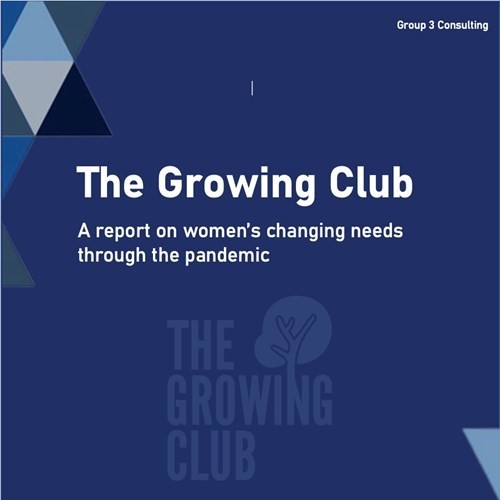The Growing Club CIC recently commissioned a new report, to identify the changing needs of women in the district during Covid 19 pandemic. The findings suggested that women now have a greater need for social connection than previously, along with increased concerns about wellbeing and finances.
The primary research was undertaken by a group of Lancaster University students through online and physical surveys, with questions about the changes local women have experienced throughout the pandemic. This allowed for women to share any experiences or opinions.
The questions were created in order to identify the specific ways that the pandemic changed women’s lives, and any needs that arose because of it. The responses were analysed through the context of Maslow’s Hierarchy of Needs, leading to conclusions and recommendations that The Growing Club CIC could implement going forwards.
The most requested kind of support during the pandemic was an increased social need. Women who have been subject to lockdowns in the Lancaster District have clearly been impacted by the isolation and their wellbeing has suffered as a result.
Looking forward to the next one to two years, women stated that their needs would be centred around three main areas: social, wellbeing and financial, feeling that social needs will continue to be a strong priority.
Jane Binnion, founding and managing director of The Growing Club CIC said:“We were very fortunate to have a group of Lancaster University students agree to do some research for us to get answers to a question that had been bothering us “How have needs changed for women in Lancaster District as a result of the pandemic?
“There seemed to be a general attitude in the wider world that things would go back to normal, but our sense was things had significantly changed and we would be seeing the effects of that for some time to come.
“The biggest shift identified was a greater need for connection with others. Of the 199 local women surveyed, pre-pandemic the main identified needs were financial, training and work-life balance. This year their needs were primarily social, wellbeing and financial, and they saw social needs being of even greater importance over the next 12 to 24 months.
“This is crucial information both for us as a women’s employment and enterprise training and support organisation, and for all other organisations supporting women. Whilst we focussed on Lancaster district, we believe the findings will be relevant for other areas of the country too.”
You can download the report: A Report on Women’s Changing Needs Through The Pandemic, here.























